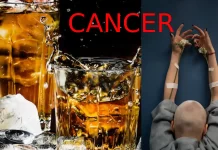
Breast Cancer Prevention and Support: A Comprehensive Guide
Breast cancer is a significant health concern that affects millions of women worldwide. While it can be a frightening diagnosis, there are proactive steps you can take to reduce your risk and find support if you or a loved one is facing this disease. In this comprehensive guide, we’ll explore breast cancer prevention strategies and provide valuable information on how to seek and offer support during this challenging journey.
Table of Contents
- Understanding Breast Cancer
- Risk Factors and Early Detection
- Lifestyle Changes for Prevention
- Regular Breast Self-Exams
- The Importance of Self-Exams
- How to Perform a Self-Exam
- Clinical Breast Exams and Mammograms
- When and How Often to Get Screened
- What to Expect During a Mammogram
- Genetic Testing and Counseling
- Who Should Consider Genetic Testing
- Understanding Genetic Risk Factors
- Diet and Nutrition
- Foods That Promote Breast Health
- The Role of Alcohol and Obesity
- Physical Activity
- Exercise and Breast Cancer Risk
- Recommended Physical Activity Levels
- Smoking and Breast Cancer
- The Link Between Smoking and Breast Cancer
- Resources for Quitting
- Hormone Replacement Therapy
- Weighing the Risks and Benefits
- Alternatives to Hormone Replacement
- Breastfeeding and Its Protective Effects
- Supporting Someone with Breast Cancer
- Communicating with Empathy
- Practical Ways to Offer Support
- Navigating Treatment Options
- Surgery, Chemotherapy, Radiation, and More
- Integrative Therapies and Their Benefits
- Emotional and Psychological Support
- Coping with Anxiety and Depression
- Support Groups and Counseling
- Conclusion
- FAQs
- Q1: What age should I start getting mammograms?
- Q2: Are all breast lumps cancerous?
- Q3: Can men get breast cancer?
- Q4: How can I help a friend or family member with breast cancer?
- Q5: What are some alternative therapies for managing breast cancer side effects?
Understanding Breast Cancer
Breast cancer occurs when abnormal cells in the breast grow uncontrollably, forming a tumor. These cells can invade nearby tissues and, in advanced stages, may spread to other parts of the body. Understanding the basics of breast cancer is essential for prevention and early detection.
Risk Factors and Early Detection: symptoms for breast cancer
Identifying your risk factors is a crucial step in breast cancer prevention. Age, genetics, family history, and lifestyle factors all play a role. Regular screenings and early detection can significantly improve the chances of successful treatment.
Lifestyle Changes for Prevention: awareness of breast cancer
Adopting a healthy lifestyle can reduce your risk of breast cancer. This includes maintaining a balanced diet, staying physically active, and avoiding tobacco and excessive alcohol consumption.
Regular Breast Self-Exams: early symptoms of breast cancer
Performing regular breast self-exams is an empowering way to monitor your breast health. It’s a simple practice that can help you detect any unusual changes early on.
Clinical Breast Exams and Mammograms
Clinical breast exams and mammograms are essential tools for detecting breast cancer in its early stages. Knowing when to get screened and what to expect during these exams is vital.
Genetic Testing and Counseling
For individuals with a family history of breast cancer, genetic testing and counseling can provide valuable insights. Learn who should consider genetic testing and understand the role of genetic risk factors.
Diet and Nutrition
What you eat can impact your breast health. Discover foods that promote breast health and learn about the link between alcohol, obesity, and breast cancer risk.
Physical Activity
Regular physical activity not only benefits your overall health but also reduces breast cancer risk. Find out how exercise can make a difference and get recommendations for staying active.
Smoking and Breast Cancer
Smoking is a risk factor for various cancers, including breast cancer. Explore the connection between smoking and breast cancer and access resources for quitting.
Hormone Replacement Therapy
Hormone replacement therapy can have implications for breast health. Learn about the risks and benefits, and explore alternatives to manage menopausal symptoms.
Breastfeeding and Its Protective Effects
Breastfeeding offers protective benefits for both mother and child. Discover how breastfeeding can reduce breast cancer risk and provide numerous health advantages.
Supporting Someone with Breast Cancer
If someone you know is facing breast cancer, offering support is crucial. Learn how to communicate with empathy and provide practical assistance during their journey.
Navigating Treatment Options
Breast cancer treatment options vary, from surgery to chemotherapy and radiation. Explore these treatment modalities and discover integrative therapies that can enhance well-being.
Emotional and Psychological Support
Coping with breast cancer can be emotionally challenging. Explore strategies for managing anxiety and depression and find resources like support groups and counseling.
Breast cancer prevention and support are multifaceted. By understanding risk factors, adopting a healthy lifestyle, and seeking early detection, you can take proactive steps. Moreover, providing emotional and practical support to those facing breast cancer is invaluable.
Breast cancer is a formidable adversary, but with knowledge, support, and proactive steps, you can take control of your breast health and offer invaluable assistance to others facing this challenge.
Discover effective strategies for breast cancer prevention and support in this comprehensive guide. Learn how to reduce your risk and find the assistance you need during your journey.
Breast cancer is a formidable foe, affecting millions of women worldwide. However, with the right knowledge and support, you can take proactive steps to prevent it and navigate the challenges it presents. In this article, we will explore breast cancer prevention and support comprehensively, providing valuable insights and practical advice.
Whether you’re looking for ways to reduce your risk or seeking guidance during a breast cancer journey, this guide is your trustworthy resource.
Healthy Diet and Weight Management
Maintaining a balanced diet and a healthy weight can play a crucial role in breast cancer prevention. Research suggests that a diet rich in fruits, vegetables, and whole grains, coupled with regular physical activity, can lower your risk.
Regular Breast Self-Exams: the causes of breast cancer
Self-exams are a vital part of early detection. By performing monthly breast self-exams, you can become familiar with your breast tissue and quickly identify any changes or abnormalities.
Support Systems: Navigating a Breast Cancer Diagnosis
A breast cancer diagnosis can be overwhelming, but you don’t have to face it alone. Various support systems are in place to provide emotional, informational, and practical assistance.
Friends and Family
Your loved ones can be a source of tremendous support. Lean on them for emotional support, assistance with daily tasks, and companionship during medical appointments.
Support Groups
Joining a breast cancer support group can connect you with individuals who understand your experiences. Sharing your thoughts and concerns with others who have walked a similar path can be incredibly therapeutic.
FAQs (Frequently Asked Questions)
Is breast cancer preventable?
Breast cancer can’t always be prevented, but you can reduce your risk through a healthy lifestyle and regular screenings.
What are the risk factors for breast cancer?
Risk factors include genetics, age, hormonal factors, and lifestyle choices like smoking and alcohol consumption.
Are mammograms necessary for prevention?
Mammograms are essential for early detection, which can improve treatment outcomes. They are not a prevention method but a screening tool.
How can I support a loved one with breast cancer?
Offer emotional support, accompany them to appointments, and assist with practical tasks like meal preparation.
Can men get breast cancer?
Yes, although it’s less common, men can develop breast cancer. They should also be aware of the risk factors and the importance of early detection.
Are there financial resources for breast cancer patients?
Many organizations offer financial aid and resources to help breast cancer patients cope with the costs of treatment.
What are some alternative therapies for managing breast cancer side effects?
Alternative therapies like acupuncture, yoga, and meditation can complement traditional treatments and help manage side effects. Consult with your healthcare team for guidance.
Conclusion
Breast cancer prevention and support are multifaceted topics that demand our attention and compassion. By taking proactive measures to reduce risk and seeking out the support you need, you can navigate this journey with resilience and hope.
Remember, you are not alone. Reach out to your support network, stay informed, and take control of your health. Together, we can work towards a future where breast cancer is no longer a threat.























